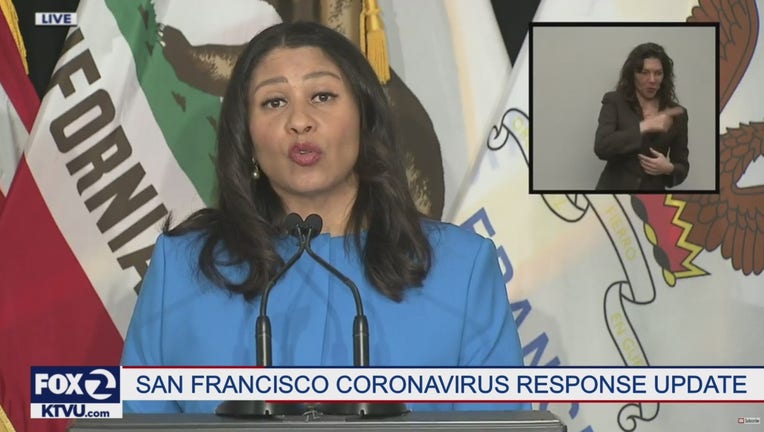San Francisco unveils COVID-19 safety plan for Tenderloin, sees near 300% increase in tents

San Francisco Mayor London Breed provides remarks on the coronavirus pandemic on Wednesday, May 6, 2020.
SAN FRANCISCO - San Francisco Mayor London Breed and city leaders released a comprehensive safety assessment plan for the Tenderloin neighborhood where two public health crises have collided—COVID-19 and homelessness.
Long before the crisis, the Tenderloin neighborhood faced many challenges, but COVID-19 has led to a renewed focus on how to support unsheltered residents.
The city said since the start of the pandemic, the neighborhood has seen a significant increase in homelessness. Jeff Kositsky, manger of the city's Healthy Streets Operation, shared some jarring statistics. He said currently, there are over 300 tents along streets in the Tenderloin and 20 large homeless encampments. He said that's an increase of almost 300% since January.
Kositsky added that current conditions in the neighborhood have had negative impacts on public health and safety.
RELATED HEADLINES:
• San Francisco sued over Tenderloin's squalid conditions
The Tenderloin is home to many of San Francisco's low-income families and people who were formally homeless. It also hosts the second-largest African American population in the city and was the center for tenant rights and LGBTQ activism.
But the Tenderloin has become rife with challenges.
"Open-air drug dealing and use, sex work, and homelessness are acute," Kositsky said.
On April 28, the city deployed multi-disciplinary teams to conduct an on-the-ground assessment of the quality of life challenges in the Tenderloin.
From their findings, the city narrowed its focus on 13 blocks in the neighborhood that are most impacted.
San Francisco on Wednesday unveiled the Tenderloin Plan, which aims to address some of those challenges.
The plan has eight main goals:
- Address encampments by offering safe sleeping alternatives to unsheltered individuals.
- Facilitate social distancing compliance by closing streets and parking.
- Ensure that housed residents in the Tenderloin have safe passage and access to their homes and businesses.
- Improve access to hygiene station, restrooms and garbage disposal for unhoused individuals.
- Address food and water insecurity for housed and unhoused residents alike.
- Increase police presence in the neighborhood to focus on public safety concerns.
- Increase health services in the neighborhood.
- Increased education and outreach to residents and businesses through a ‘care ambassador’ program
San Francisco has already installed six drinking water fixtures in the area, and starting next week, will activate a “Safe Sleeping Village” at the current Fulton Street Mall encampment.
A team of community care ambassadors will operate in the Tenderloin taking a measured block-by-block approach to support residents with social distancing, accessing pertinent resources, and will participate in light street cleaning, city officials said.

